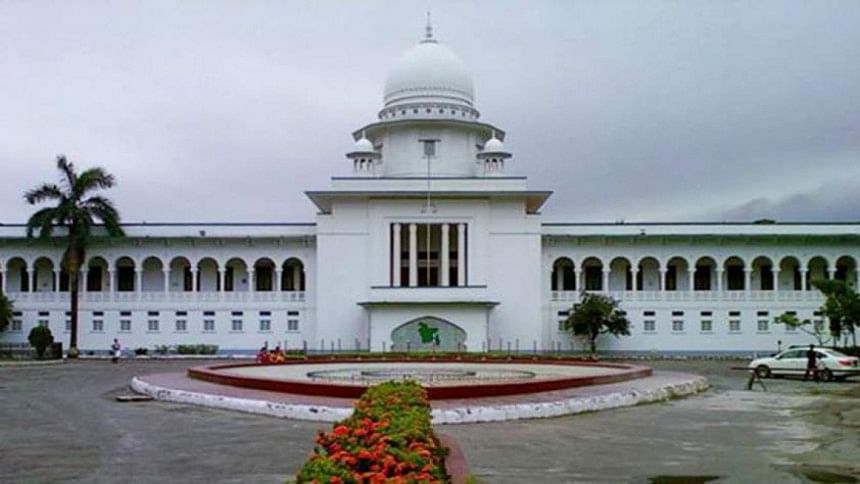Immense power, little application

Contrary to popular belief, the National Human Rights Commission is armed with ample power to help ensure justice and even compensation for victims of rights violation. But the nation’s rights custodian hardly ever uses its power to protect these victims, many of whom are people outside the power circle with no one else to support them.
NHRC officials say they cannot act with full force since they lack “executive power” while the public often view the rights body as a “toothless” organisation.
But legal experts and rights activists say the commission has enough power, but it either does not know how it should go about its job or it is reluctant to do something that could embarrass the government.
The alleged abuse of domestic help Khadiza Akhter by her employer in the capital’s Mirpur is a case in point. On December 6, 2013, police rescued her from her employers’ house and had her admitted to Dhaka Medical College Hospital with injuries on different parts of her body.
Police, however, did not file any case and the alleged torturer was never brought to justice.
NHRC DOING TOO LITTLE
Following newspaper reports on Khadiza’s “abuse”, Children’s Charity Bangladesh Foundation brought her case to the NHRC on December 10, 2013, seeking appropriate action against police for not filing a criminal case against her employer.
Under the 2009 law, the NHRC could launch a probe into the allegation, issue a show-cause notice to police, summon police and home ministry officials, recommend legal action against the police officer(s) and also ask the government to give Khadiza compensation of an amount it deems appropriate.
But the commission did none of these. What it did though was an exchange of letters for one year, which is nothing but formalities.
First, the commission sought a report from the police on the action taken about the abuse allegation. In response, police said they took none as she was admitted to the hospital for “skin problems” and that her father did not bring any charge against the employer.
When the charity pointed out that the police report did not contain Khadiza’s medical records, the commission approached the DMCH and found that the girl, only 12 then, was admitted there with multiple injuries and an abscess in her right leg. She had dermatitis and suffered severe under-nutrition. She also had a healed cut mark on her tongue. Her treatment at the DMCH lasted more than two weeks, records show.
Such conflicting information in the police report and the DMCH report led the NHRC to conclude that police had violated Khadiza’s human rights by covering up her torture, according to NHRC’s own letter to the charity.
Even so, it did not seek an explanation from the police for their failure or recommend compensation for the victim.
Instead, it wrote to the home ministry for investigating the police conduct and take action. Despite writing many such letters to the ministry in the last five years, the commission received no response.
The law allows the government no more than six months to inform the commission of its actions.
So the NHRC, which is a quasi-judicial body, could summon the ministry officials for not complying with its instructions or could go to the High Court seeking its order, but it did neither.
FRUSTRATING: HC
The charity brought the entire saga to the attention of the High Court in March last year. During a hearing, the court observed that the commission had been negligent in “performing its duties as per the legal mandate for which the commission was constituted”.
The court also termed “frustrating’” the commission’s failure to ensure justice for Khadiza and the ministry’s failure to respond to the NHRC’s letters.
Abdul Halim, the lawyer for the charity, said section 18(3)(b) of the NHRC Act empowers the commission to issue show-cause notices. It can also summon the parties involved for a hearing.
When the ministry did not comply with the commission’s instructions, the HC said, it was “incumbent immediately upon the commission” to approach the HC to give an order, as mandated by section 19(1)(b) of the NHRC law.
“When there is no one to support a victim like Khadiza, it is the commission that must support her,” it said, adding such a negligence by the NHRC would not even have surfaced if it were not for the charity.
Halim said the commission should have asked for the medical record in its first instruction to the police. Besides, after receiving the flawed report, it could serve a show-cause notice to the home ministry right away.
What the NHRC did shows it does not know how to review investigation reports, he added.
But Khadiza’s is not the only such case.
From 2012-2016, the NHRC sent 154 letters to the home ministry asking it about the law enforcers’ alleged involvement in enforced disappearances and extrajudicial killings. But it did not receive any reply from the ministry. Still, the commission did not summon any ministry officials for their failure to comply.
NHRC officials often claim their hands are tied by the law when human rights are violated by law enforcers.
Limon Hossain Limon, who was shot in the left leg by Rab men in 2011, recently told The Daily Star that the commission had not given him any legal support in pursuing the case he filed against the Rab. It also did not realise any compensation for him.
PROGRESSIVE LEGAL INTERPRETATION
In a report last year, Ain o Salish Kendra (ASK) said a progressive and courageous interpretation of the law does not actually keep the commission from investigating or resolving such cases.
If the NHRC really wants to shield any victim, it can use its power to review reports on rights violation even by “disciplined” forces, make recommendations and put pressure on the government to take action.
The way India’s Human Rights Commission overcomes similar challenges can be an example, ASK pointed out.
In its monthly publication from March, the Indian commission said it recommended a monetary relief of Rs 1.57 crore in 57 cases in February. Among the cases, eight were death in police custody, six deaths in police encounter and one in defence custody.
Incumbent NHRC Chairman Kazi Reazul Haque said dealing with individual cases was not their job. “The responsibility is to point out the gaps in the system.”
Asked about realising compensations for victims, he said, “What would happen if the commission seeks compensation? Who would implement it?”
The NHRC’s strategy is to mount pressure on the government first and then move to a court, Reazul said, adding that the commission had appointed a lawyer to describe its position to the court as to why it could not make prompt moves in Khadiza’s case.
Former NHRC chairman Mizanur Rahman admitted that if the NHRC acted in line with the law, it could have put some pressure on the government.
But it often fails to act for a lack of manpower, budgetary allocation and logistics, said the ex-chairman, who was in office when Khadiza’s case unfolded.
According to Abdul Halim, however, even if the rights body resolves one human rights violation case, it should do it in full compliance with the law. Only then the commission can have an impact as the protector of rights.

 For all latest news, follow The Daily Star's Google News channel.
For all latest news, follow The Daily Star's Google News channel. 







Comments